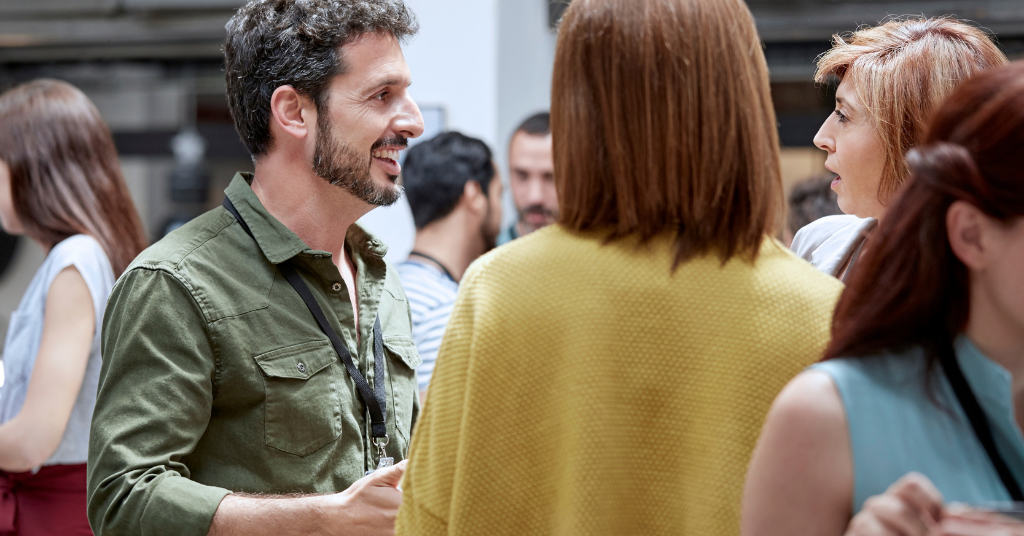
Their voice just faded away: My experience with sudden deafness
February 1, 2016
Support for parents of deaf children
February 3, 20165 ways to accommodate deaf or hard-of-hearing guests at your wedding

Planning a wedding can be a stressful process. There are so many things to take into consideration: obvious things such as the dress, rings, flowers, vows, cake and venue. But then are the specifics to your family and friends, such as how many guests are vegetarian; do any have nut allergies or a mobility problem, what about hearing loss? Phonak Open Ears’ blogger Angie has put together some tips for planning a deaf-friendly wedding.
About 20 percent of Americans, 48 million, report some degree of hearing loss, according to the Hearing Loss Association of America. At age 65, one out of three people has a hearing loss. So if you’re having a wedding with grandparents or older relatives in attendance, the chance of one of them not being able to hear to well is pretty high. So, how can you accommodate their needs so that they are fully included in the day?
Here are my top five tips for making your wedding day as accessible as possible for guests with hearing loss:
1. Ask them what they need
Hearing you say your vows will be the most important part of the day for your guests. So, whether your deaf guest is a relative you’ve known all your life, or a guest’s ‘plus one’, you need to find out more about their communication needs and, the best way to do that is to ask. It will be useful for you to find out the following:
- Do they use hearing aids? If they do, then be aware that even the best hearing aids amplify background noise to a degree (although some come with a special ‘speech in noise program). In order for your guest to enjoy the day with maximum comfort, you may wish to consider ways of keeping background noise to a minimum.
- Would they like to use a loop system? A loop system is specialist equipment situated in a venue, which transmits sound from one or more microphones, directly to the hearing aid via a telecoil (a piece of technology fitted into most hearing aids). Some hearing aid users find great benefit from using a loop and telecoil system as this overcomes the barriers of both distance and background noise, by sending the voice of the speaker directly into the hearing aid. (From personal experience, it sounds as though the words are being spoken straight into your ear.)
- Do they have a personal FM system? Some hearing aid users will have their own FM system. Like loops, these too transmit voices from a microphone, directly into the hearing aid – but they use a different type of technology. The biggest difference for you as a wedding-planner is, that if your guest has a personal FM system, you will not need to request the use of a loop. You will have to use a remote microphone to connect to the FM system.
- Are they a lipreader? If your guest is a lipreader, they will appreciate a front row seat so they can see the vows being said. How you and your celebrant are positioned in relation to the guests will be key.
- Are they a signer? If your guest is Deaf and uses sign language, you my like to arrange for an interpreter to attend to sign the ceremony.
- Who else in the wedding party do they know? Having hearing loss can be socially isolating at times. Some people with hearing loss find it difficult to tell strangers about their communication difficulties. To avoid telling a stranger ‘our business’, we deafies can sometimes over-compensate by not letting the other person get a word in edgeways; pull back from conversation and appear stand-offish or rude; do a lot of nodding and ‘hmming’ and ‘ahhing’ but not really have a clue what the conversation is about. None of these are much fun. If possible, seat the deafie with their friends and family so they can be included in conversation. Ask them who they’d like to sit with and accommodate them where possible.
2. Wedding venue
People can be married in all kinds of places nowadays: hotels, boats, municipal parks, even in aquaria – there is so much choice out there. But, if you’re accommodating guests with hearing loss, there are some things you may wish to take into consideration when selecting a venue:
- Does the venue have a public address (PA) system? Depending on the size of the venue and its acoustics, you may wish to consider hiring a PA system. Having a microphone, amplification and speakers will help everyone with hearing difficulties and people seated far from the action.
- Does it have a hearing loop? As mentioned above, a fixed room hearing loop is helpful for hearing aid users whose aids have a telecoil (sometimes referred to as a ‘T-switch’). A loop system can be used by multiple people and it is discreet: none of the other guests will know who is using the loop.
- What are the acoustics like in the venue? Hard surfaces (tiled floors and panelled walls) make for a ‘bright’ sound and can cause background noise to reverberate. This can be unpleasant for hearing aid users. Rooms with thick carpets and curtains have a more ‘deadened’ sound and are better for hearing aid users.
- In order to be able to lipread, there needs to be adequate lighting. When people stand with their backs to a window, their faces are in shadow, making lipreading difficult unless there is additional lighting in the room to compensate.
3. The photos
If you’ve chosen to have formal wedding photos taken, you will want them to reflect the very best of your big day: you don’t want someone facing the wrong way or failing to wave at the appropriate time and this is where us deafies may cause the happy couple a few headaches. So, to avoid us missing the photographer’s instructions, here are a couple of tips:
- Buddy system. If your deaf guest is required in the formal wedding photos, you might like to ask if they would like you to arrange a ‘buddy’ who will relay the photographer’s instructions to them. There’s nothing worse than missing a joke or a cue so, this offer is likely to be very well appreciated.
- Written instructions. If your deaf guest is a key member of the wedding party (bridesmaid, best man, father of the bride, etc.) and due to feature in many formal photographs, they may appreciate a printed running order for the photo shoot with instructions for where the photographer wants them to be.
4. The Wedding Breakfast and Reception
Wedding celebrations take many forms, from hog-roasts and hoe-downs to formal sit-down dinners but most will have some element of background noise which will potentially make communication harder for guest with hearing loss.
- Seating plan. If you’ve asked your deaf guest who they’d like to be seated with and you have been able to accommodate their request, let them know in advance. This will alleviate their anxiety about the event and will increase the likelihood that they won’t drop out at the last minute.
- Lighting. Subdued lighting is all well and good for creating a mood but it’s a nightmare when you’re trying to lipread so, try and make sure that there is extra lighting for lipreaders.
- The speeches. Make sure there is a microphone and PA system for the speeches: nobody likes to miss out on a good joke.
5. Accommodation
When the party is over and it’s time to turn in, it’s good to know you can sleep soundly without fear of missing an emergency alert such as a fire alarm sounding.
- Flashing/vibrating fire alarms. Check to see if your recommended accommodations are deaf-friendly. In the UK, hotels are obliged by law to provide an evacuation plan for guests with disabilities. Part of this plan is likely to include the provision of flashing/vibrating fire alarms (portable devices which can be used in any hotel room where the alarm sounds at 65 decibels or more – the volume necessary to active the device). The number of devices available at hotels is often quite limited so it is a good idea to reserve the equipment at the time of booking the room.
Finding venues and accommodation which are accessible to people with hearing loss is not always easy. If you’re looking for a venue in the UK, my website has a list accessible accommodation and wedding venues accessible to people with hearing loss.
Do you have any more tips for planning a deaf-friendly wedding? Let us know in the comments below, or join a group forum to keep the conversation going!








